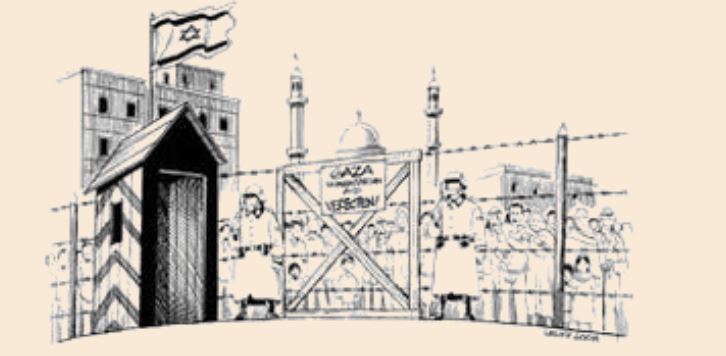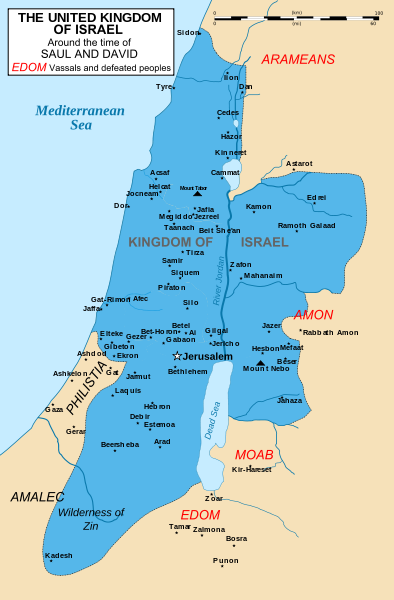
Views: 3115

Israel’s Maariv newspaper has revealed that the government of the Zionist state is planning to drop a political bombshell in the coming weeks by presenting a bill in the Knesset (parliament) calling for the annexation of land occupied since 1967. It is likely to have the support of the majority of Knesset members. The newspaper added that the right wing has chosen this time for the move ahead of the US presidential election; America, it is believed, will be too preoccupied to care about what is happening in the occupied Palestinian territories.
Preliminary talks about a first stage have been held, claimed Maariv; Israel would annex all Area C land — which includes 60 per cent of the occupied West Bank —where more than 400,000 illegal Jewish settlers live alongside tens of thousands of Palestinians. Under the proposal, Israel will offer residents Israeli identity while imposing its curricula in schools.
According to far-right Justice Minister Ayalet Shaked, Israel must impose Israeli law in the West Bank, which means in practical terms that the occupied Palestinian territories would come under full Israeli control.
Furthermore, Deputy Defence Minister Eli Ben-Dahan has demanded “the annexation of the West Bank because the Arab and regional situation is appropriate for this step.” Naftali Bennett, the leader of the extreme right-wing Jewish Home Party, which is part of the government coalition, said that, “It is better for Israel to begin annexing Area C”.
These positions and statements should not be taken lightly, because Prime Minister Benjamin Netanyahu’s government is working on the basis that the West Bank is “liberated land” and formal annexation is only a matter of time.
It was in the historic election in 1977 that the Israeli right-wing won a majority in the Knesset for the first time. The government was led by Menachem Begin, a student of Revisionist Zionist thinker Ze’ev Jabotinsky, who authored the iron wall theory. This set out that the indigenous people of the country would not accept what the Israeli occupation authorities want, what they are exposed to or solutions imposed by the occupation; and that Israel will go through a continuous process of change towards becoming a more and more Jewish, right-wing, settler-based and racist state.
This trend has deepened dramatically since Netanyahu’s return to government in 2009 when Israel’s so-called “third phase” began. The right-wing became the mainstream, dominating power in government and society. At the same time, the influence of Knesset members, parties and groups wanting to find a solution that includes the establishment of a Palestinian state alongside Israel faded to the point that the Labour Party abandoned this option. Instead, it adopted unanimously a plan put forward by the country’s President, Chaim Herzog. The plan was based on a unilateral solution that calls for formal separation of the areas populated by Palestinians in order to protect Israel as a Jewish state, and not to expose it to the risk of becoming a bi-national state.
There are a series of changes taking place in Israel where secular and liberal characteristics have all but disappeared, while the religious right-wing has become more prominent. These changes have been made through the adoption of laws and policies, and by imposing facts on the ground that make changing this reality very difficult. If, for example, we look at the state’s relations with the Palestinians, we find that voices calling for their deportation are increasing; these are the voices of people in senior positions in the government, army, security services and Knesset, as well as various state institutions. Also, the Israeli government moved from conflict management and the creation of facts on the ground that can help Israel to impose its unilateral solution when negotiating “final status” issues, to simply imposing that unilateral solution. Thus, the central part of the Israeli government and the opposition basically gave up any semblance of agreement on the establishment of a Palestinian state to the extent that they refuse even to countenance it.
The Israeli position became such that the government refused to talk with the Palestinians unless the latter agreed in advance to specific conditions. These included recognition of Israel as a “Jewish state” for all Jewish people all over the world, and for Israel’s security to be the main, and perhaps only, frame of reference for Palestinian-Israeli relations now and in the future. Israel also insists on the presence of its occupation forces in strategic locations within the Palestinian state after its establishment, and the granting of absolute freedom of movement for them all over the “Promised Land”.
It is within this context that the number of illegal Jewish settlers in the occupied West Bank has reached more than 700,000. Israel is working at an accelerated pace to increase this to one million within a few years.
We can also talk about Israel’s keenness to separate the West Bank from the Gaza Strip and doing all it can to make it a permanent political and physical separation. It is doing this by stripping the Palestinian Authority of its power, to such an extent that, as President Mahmoud Abbas has said repeatedly, the PA is an authority without authority, in spite of all the concessions that he and his ministers have made. The PA continues to be committed to the terms of the Oslo Accords; it accepts the 2003 international road map; and it has made unilateral commitments while Israel shows no commitment at all. From this position, we can understand why the Israeli government refused the offer made by the PA to stop threatening to implement decisions of the Palestinian Central Council, including an end to security coordination with the Israelis, in exchange for Israel’s commitment not to enter Area A. The authority suggested that this could begin with Ramallah and Jericho first, and if that works out, whereby Palestinian security forces would carry out their job in a manner that relieves the occupation from storming into these areas, then the experience could be spread to the rest of the occupied territories. The Netanyahu government was quick to reject any suggestion that would restrict the freedom of the occupation army to move across any area at will; this freedom is sacred for Israel, despite it paying tribute to the achievements of the Palestinian security services.
The question now is whether it would be possible to continue with the same policy that was used during negotiations, even though it was an illusion, and Israel is now becoming more vicious and refuses to partake in any negotiations whatsoever. It continues to impose its own solutions on the ground, stating clearly what it intends to do as it takes advantage of developments in the Arab region (where the Iranian threat has more priority than anything else) and around the world, which it believes have improved its strategic position.
Israel thinks that it has a great opportunity to achieve the still unfulfilled goals of the Zionist movement: the establishment of Israel on the whole of historic Palestine and beyond; in short, to revive the “Greater Israel” scheme from the Nile to the Euphrates.
 The Zionist state of Israel is relying on the deteriorating Arab situation and the decline of the Palestinian national cause, which is weak, self-destructive and disoriented. The Palestinian leadership is still going round in circles reproducing the same old options without having enough courage to adopt anything new. Both of the main factions are just hanging around and waiting; the others are too small, weak and fragmented to do anything constructive.
The Zionist state of Israel is relying on the deteriorating Arab situation and the decline of the Palestinian national cause, which is weak, self-destructive and disoriented. The Palestinian leadership is still going round in circles reproducing the same old options without having enough courage to adopt anything new. Both of the main factions are just hanging around and waiting; the others are too small, weak and fragmented to do anything constructive.
Despite all of the above, the path to achieving “Greater Israel” is not smooth. The Palestinians, despite all that they suffer from, are still sticking to their cause, their rights and their presence on their land, and they continue to resist with all available forms of popular and armed resistance. They have also encouraged an international boycott, divestment and sanctions (BDS) movement against Israel which threatens it strategically, and they have UN recognition of Palestine as a state. They have since joined a number of international institutions, notably the International Criminal Court. Most importantly, the Palestinians started a new intifada in October fuelled by individuals with no formal leadership, factions, the PLO or the PA; this is reminding the Israelis that the Palestinians are still there, that resistance continues one generation after the other, and that this racist, colonial-settler occupation cannot continue to be quiet, profitable and permanent.
Although there are elements of strength and a suitable environment for the revival of “Greater Israel” it has some weaknesses. If the Palestinians could learn how best to utilise them, they would be successful. Some of the weak points include Israel being an enemy to itself, proposing a project that has no future as it raises discontent and resentment across the globe, prompting criticism even from its trusted allies, like the United States, Britain, Germany and France.
In order to defeat hostile schemes, the Palestinians need a vision, a national institution, a leadership that is up to the challenges and risks and able to employ opportunities; they need an effective political hierarchy and a strategy for the struggle that can achieve the maximum in each stage. They can then move on to achieve more and more until they realise the humanitarian, democratic and historical solution on the ruins of the racist, colonial-settler, Zionist project.
Author: Hani Al-Masri
Translated from Masarat.ps, 3 May, 2016
Source: MEMO
Origins of images: Facebook, Twitter, Wikimedia, Wikipedia, Flickr, Google, Imageinjection, Public Domain & Pinterest.
Read our Disclaimer/Legal Statement!
Donate to Support Us
We would like to ask you to consider a small donation to help our team keep working. We accept no advertising and rely only on you, our readers, to keep us digging the truth on history, global politics, and international relations.
FOLLOW US ON OUR SOCIAL PLATFORMS









